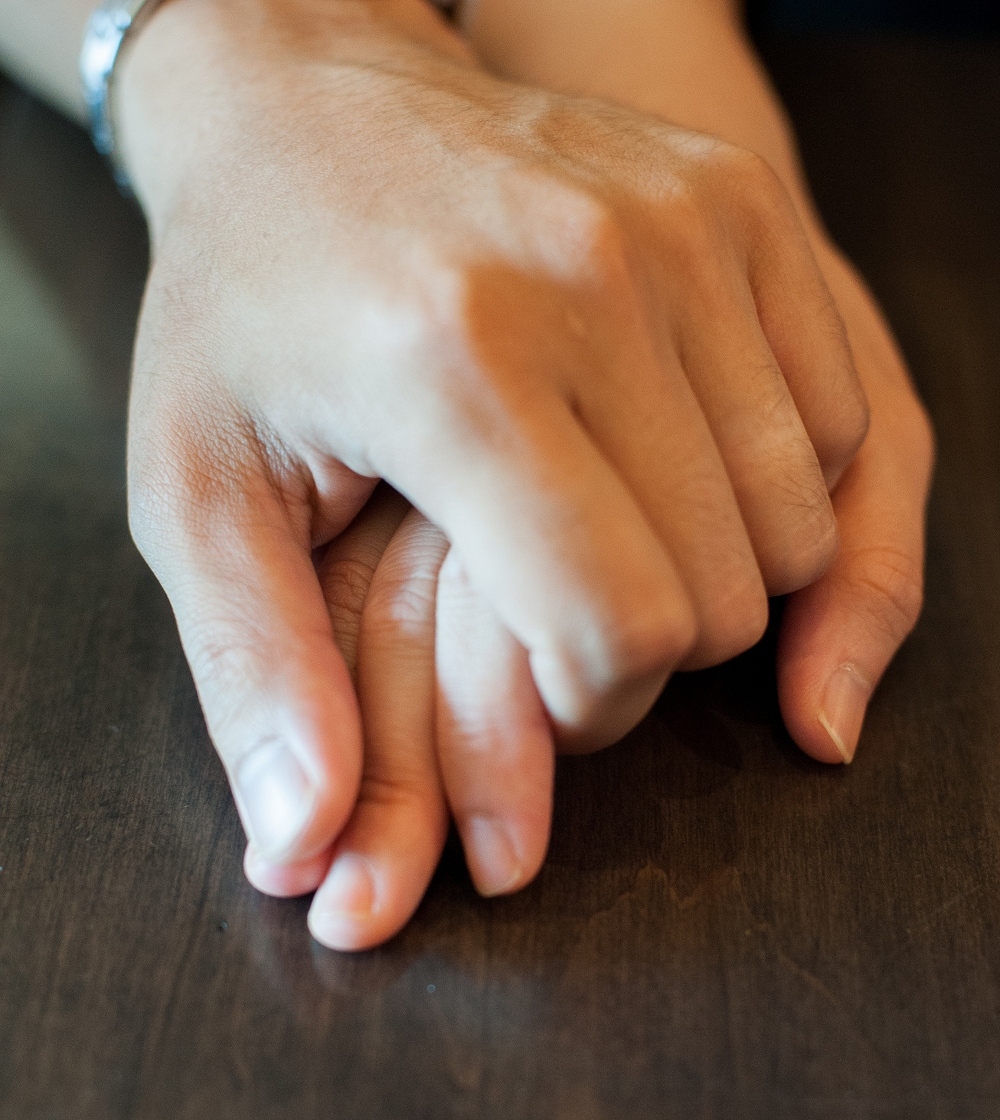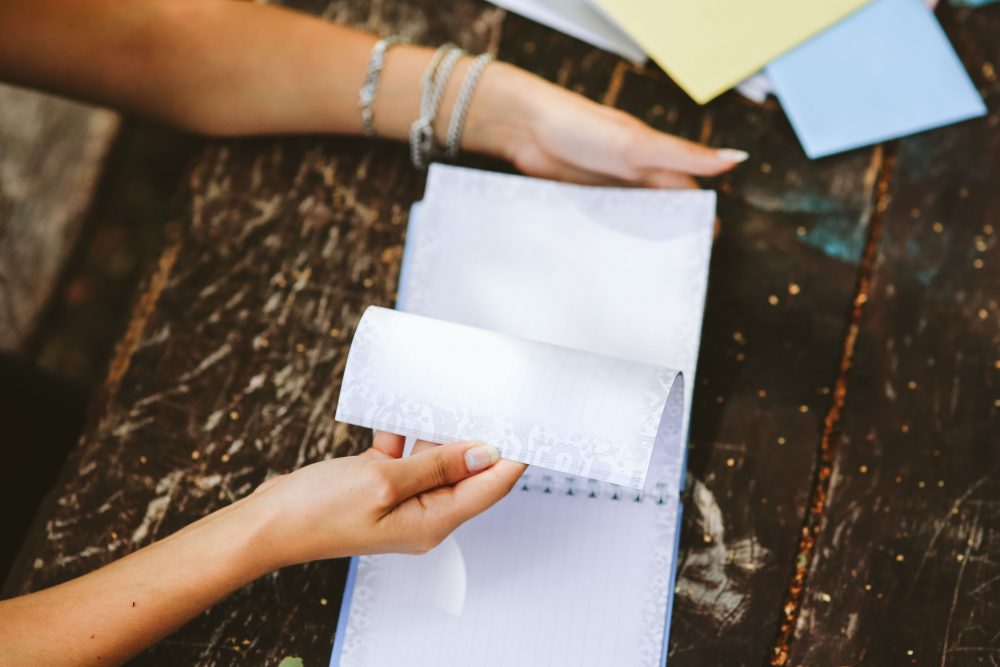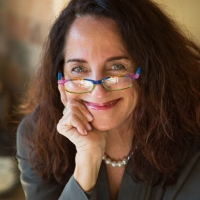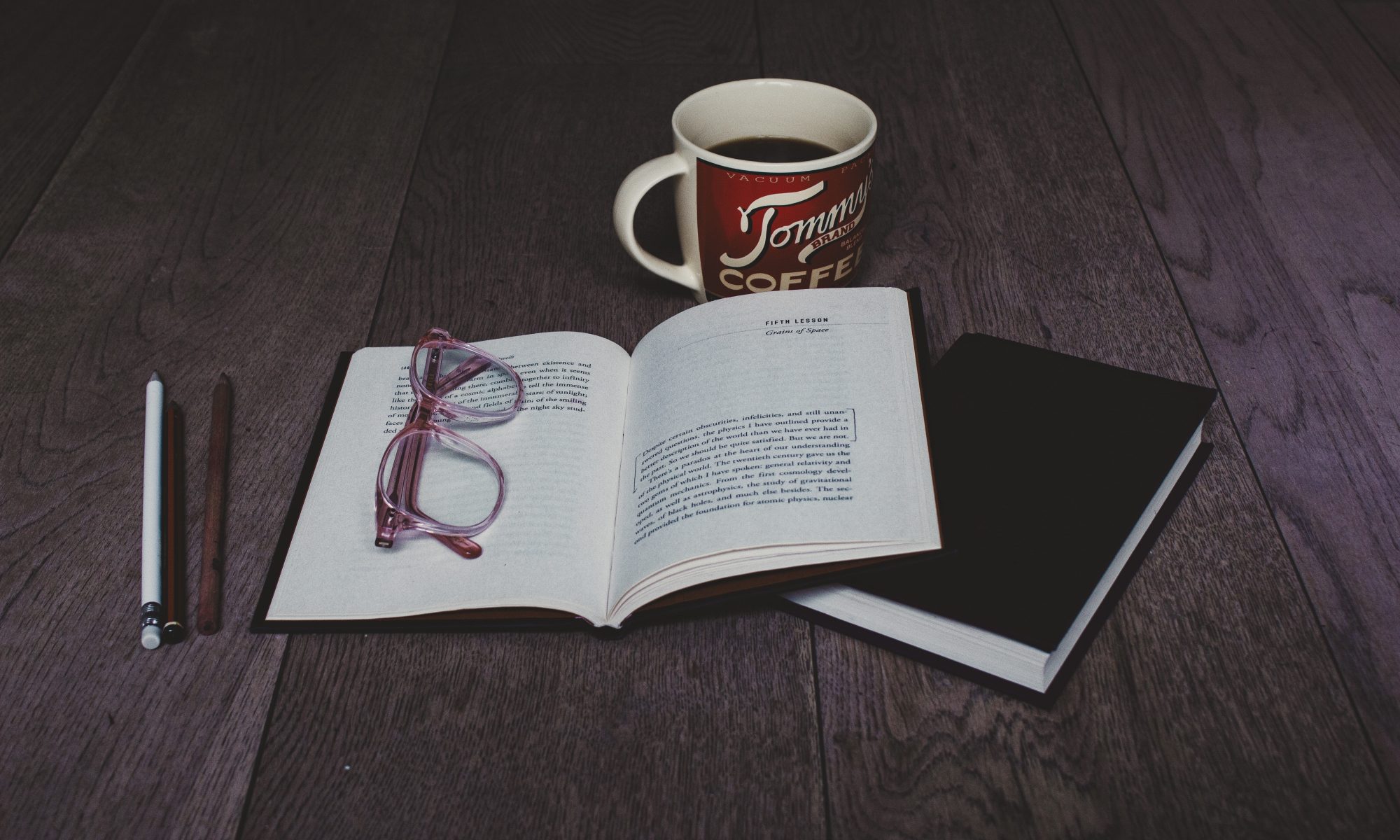
When I was ten years old, my mother gave me a journal to help me cope with my grandmother’s suicide. That seemingly benign gesture changed my life forever, and served as the groundwork for my life as a writer.
While I continued to journal over the years, I became much more regular after my breast cancer diagnosis in 2001. At the time, my husband, Simon, my three kids, and I were living in Orlando, Florida. My doctor suggested that I obtain a second opinion from a Los Angeles specialist in this type of breast cancer. Within a couple of weeks, my husband and I had boarded a plane to LA, and after enduring all the necessary tests, the doctor presented me with my options—either have radiation and chemotherapy, or undergo a mastectomy with reconstruction. After years as a practicing nurse, I knew that the best way to make a decision when given a choice by your physician was to ask what he’d suggest for his own wife. Because of how he answered, I opted for a mastectomy and reconstruction.
While in California, and a few days after my surgery, I sat in my hospital bed surrounded by orchids sent by loved ones from around the country. Tear-saturated tissues lay piled high on my bedside table, and the early-morning sun peeked through the large window in my room. The emotional pain of losing a breast had hit me hard. When my surgeon said he would soon remove the tight, corset-like bandage wrapped around my chest, I feared seeing what lay underneath—that is, what one of the breasts that had nursed my three now-teenage children would look like.

Just days after my surgery, my husband reached out across the sterile, white bed sheets to take my hand. Simon, an engineer and a “fixer,” had a difficult time watching me navigate the intense physical and emotional pain. He nestled up close to me and looked deep into my eyes, as he had years earlier on the day of my father’s passing.
“Right now,” he asked, “if you could do one thing that would make you happy, what would that be?”
Aside from transporting my children across the country to be with me, I confessed that I wanted to return to school for my master’s in writing. For years, this had been a dream of mine, and the recent surgery had forced me to confront my own mortality and my apparent race against time. I wanted to make this dream come true. “Well, then, we’ll make it happen,” Simon said.
It’s not that his offer healed the deep psychological wounds involved in having lost a breast, but the idea of returning to school gave me something to look forward to. After a fair amount of research, I applied to some out-of-state, low-residency programs. I was ecstatic to be accepted into Spalding University’s charter class, led by Sena Jeter Naslund. It was to commence on September 25, 2001, in Louisville, Kentucky, about a month after my surgery.
Ever since that day in my childhood when my mother had given me my first journal, I had always found solace in the written word. Journaling became a passion that I turned to during other turbulent times—whether my own adolescence, difficult pregnancies, or cancer. So, to meet the requirements of my graduate work, I decided to gather the journal entries, reflections, and poems I’d written about my breast cancer journey.

It took a full two years for me to compile all the information and journal entries into a book my mentor suggested I publish. The surprising part is that it took eight years for me to find the courage to actually write about my cancer journey.
I simply wasn’t sure whether its personal nature was something I wanted to share with the world. For me, revealing the intimate details of my story was akin to hanging my underwear on a clothesline outside my window. As someone who has always been a relatively private person, exposing myself seemed neither intuitive nor a good fit for my personality. In the end, though, after speaking with my mentor and some colleagues, we decided that the process would be cathartic and, most important, beneficial for others—particularly my two daughters, who would one day have to face the torment of possibly being affected by cancer.
In 2010, my second memoir, Healing With Words: A Cancer Survivor’s Story was published. It was a huge accomplishment for me and I was happy to be able to share my journey to inspire others to also write their story. The book is a narrative of my experience woven with my raw emotions. It also includes my journal entries, writing prompts, and poetry I wrote during my journey.
Here’s a sample:
To My Daughters
You were the first I thought of
when diagnosed with what
strikes one in eight women.
It was too soon to leave you,
but I thought it a good sign
that none of us were born
under its pestilent zodiac.
I stared at the stars and wished
upon each one that you’d never
wake up as I did this morning
to one real breast and one fake one;
but that the memories you carry
will be only sweet ones, and then
I remembered you had your early traumas
of being born too soon, and losing
a beloved grandpa too young. I have
this urge to show you the scars
on the same breasts you both cuddled
as babies, but then I wonder why
you’d want to see my imperfections
and perhaps your destiny. I cave in
and show you anyway, hoping you learn
to eat well and visit your doctors, but then
I wonder if it really matters, as I remember
what your grandpa Umpie used to say,
“When your time’s up, it’s up.”
May he always watch over you.
I’m so glad my husband inspired (and encouraged) me to get my master’s in writing. Since then, I’ve published two more books, Lust: Poetry and Writing for Bliss: Telling Your Story and Transforming Your Life which is a culmination of my life as a writer. It was inspired by my doctorate research on writing for healing and transformation. I tell others to follow their bliss because that’s what life is all about.
About the Author: Diana Raab

Diana Raab, PhD, MFA, is an award-winner writer, speaker, and educator. She’s an advocate of writing for healing and facilitates workshops in writing for transformation and empowerment. She believes in the importance of writing to achieve wholeness and interconnectedness, which encourages the ability to unleash the true voice of your inner self.
Raab blogs for numerous blogs, including: Psychology Today, Huffington Post, Elephant Journal, Global Thrive, and PsychAlive. She lives in Southern California. Connect with her on Twitter, Facebook, and Goodreads.

I really loved this touching article. I’m sure that there are many of us who could see this example as a way to save ourselves.
I so love this article. I am so affected by the words of Diana Raab.